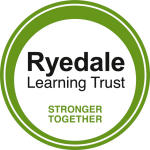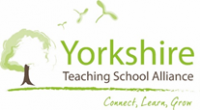Science Department Feedback and Assessment
Feedback in science using the criteria below should be undertaken every 6 to 8 hours of contact time.
- Feedback in science should be frequent and can be a combination of verbal and written feedback. The aim of feedback in science is to improve student progress and address misconceptions and misunderstanding that are barriers to success in science. This may take a variety of forms but should include;
- Aiming to incorporate 1 piece of extended writing in science per topic in KS3 that can be marked by either peer or self-assessment or through written feedback by the teacher. These will be highlighted in the SoL. These will be incorporated into the SoL as Key Concepts.
- Science specific comments on skills or knowledge.
- Work that is marked by the teacher should focus on ensuring the students improve their explanations and understanding by asking clear questions that the students can have time to act upon (either as a homework or during lesson time). This could be annotated at the point of the work or as summary points by WWW and EBI.
- Marking of assessments can be done in lessons by the students (peer assessment), but clear marking criteria should be provided and monitored carefully by the classroom teacher.
- Students should be encouraged to reflect on assessments and provide their own views on how to improve.
- Time incorporated into lessons to reflect and act on feedback.
- Peer and self-assessment should be used in lessons to mark wrong/right answers. This mark can be scanned by the teacher to look for barriers to progress. (Use for marking worksheet questions or quick quizzes).
- Peer assessment can also be used where possible to students to mark extended writing tasks provided that clear criteria are shared with the students (may take some training, but is useful for reviewing 6 mark questions).
- Common misconceptions can be dealt with whole class. Individual books do not have to be annotated for misconceptions that are common to the class.
What we need not be doing
- Teacher time should not be wasted on correcting individual issues of WSS. Books can be returned to a student for addressing WSS at home or at lunch/break time if needed.
Examples of systems you may use also use…
- Other approaches to Feedback in Science
The department encourages a flexible approach to marking and feedback which could include a variety of different strategies as listed below. An indication of the opportunities for each strategy is explained in brackets.
- Read only marking, where the books are all read carefully and common themes and misconceptions are noted down and shared with the students in lesson time. In addition, codes could be written into books to ensure students are aware of which areas of feedback are relevant for them. (this strategy would be useful as a checkpoint mid topic or prior to a more formal assessment and kerboodle style checkpoint tests could also be employed to this end).
- Personal verbal feedback (used when students are engaged in extended writing tasks, or for more frequent feedback for disadvantaged students).
- “explain to me why this is wrong?” A useful strategy that can be done be done verbally for a handful of students at the start of a lesson.


 Ryedale School is a partner in and co-ordinator for the Yorkshire Teaching School Alliance.
Ryedale School is a partner in and co-ordinator for the Yorkshire Teaching School Alliance.